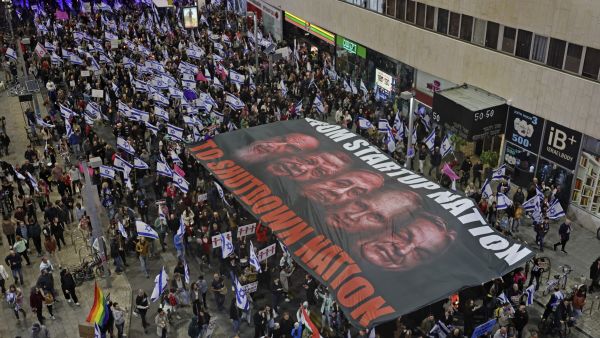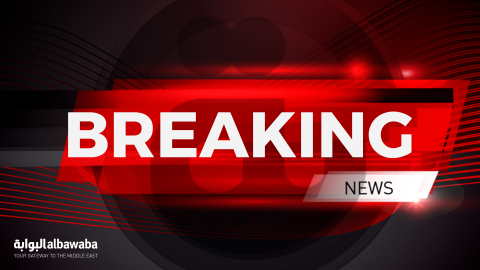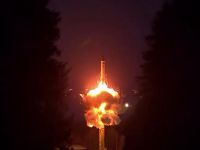ALBAWABA- In a powerful show of dissent, over 10,000 settlers embarked on a protest march from Tel Aviv towards Jerusalem, rallying against the Netanyahu government's contentious "judicial coup" plan.
The proposed measures, seeking to curtail the authority of the Supreme Court and grant sweeping powers to Parliament in appointing judges, have ignited widespread concern over their potential impact on Israel's democracy.
The magnitude of the demonstrations grew exponentially as hundreds of Israeli soldiers and pilots, echoing the public's sentiment, joined the ranks of protesters, showing their opposition to the controversial plan. Disturbingly, more than 1,000 Air Force units have declared their decision to suspend reserve service, citing their rejection of the proposed changes to the judiciary.
Amidst mounting tension, experts are sounding alarm bells, warning that if the government's plan is to be enacted, it may ignite a severe crisis, even leading to the unthinkable prospect of a civil war in Israel.
The opposition, alarmed by the far-reaching implications, deems the proposed plan a serious threat to the nation's democratic values. Israel's closest allies, including the United States and Canada, have expressed concerns over the potential ramifications of the controversial measures.
Critics argue that empowering elected officials with more influence over the judiciary could erode "Israel's democratic character" and possibly serve as a shield for Prime Minister Benjamin Netanyahu, who is currently embroiled in several corruption cases.
The future of Israel's democratic institutions hangs in the balance, with citizens and international observers closely watching the unfolding events, as the nation grapples with the rising dissent. The protesters' fervor underscores the gravity of the situation, demanding an earnest dialogue and consideration of the consequences at stake.










